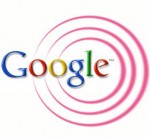Google+ at first blush: too complex and too simple
I have recently been invited to Google+, (thanks Ruchira!) and as social timesucks go, it is quite enjoyable. Here are my first impressions about g+. In a nutshell: g+’s attempt at compartmentalized communication is laudable, but falls short of the mark. Mainly because, no social network can emulate the real-life way we communicate (or not) with the people we know. Not that g+ ‘s goal emulating real-life social interactions (for those of us who still have them), but let me explain myself.
Compartmentalized communication is what we do every day: my wife reminds me about my medical appointment, but not in front of the kids, because the little one still freaks out over doctors. At work I tell someone I need to cover for me teaching (because I need to take a day off) but not my other colleagues (none of their damn business). While waiting at the Doctor’s office I receive an email that my paper is finally published. I email the info to all the co-authors, and I may also just put it up on Facebook, because I am kinda proud. But of my 100 or so FB “friends” maybe 30 will understand why this is important to me.
The average Facebook user just likes to post stuff on his wall, assuming interested friends will be reading and posting back. Most FB friends are not real friends, in the social sense, but many are acquaintances, professional colleagues, and people you just do not want to turn away when you get a FB Friend Request. G+ breaks those myriad people into circles: family, friends, acquaintances, followers. I also added “bioinformatics” and “science”. This compartmentalization by circles initially makes sense because it is more in harmony with what our social life is supposedly like. We have our family, out really good friends, our drinking buddies, our professional colleagues, people we play sports with on weekends, etc. This is where the “too complex” part comes in: in FB, the network rigidly bins my connections into family, friends, friends of friends and everybody else. These are essentially fixed sets, concentric, that are more driven by privacy than anything else. In g+, the circles are supposed to be driven by interest rather than privacy. Stuff I’d like to share with my professional colleagues goes to the “bioinformatics” circle and/or the “science” circle. Personal stuff goes to “friends” or “family”. Like I said, this makes sense initially, because it follows our ideas of social interactions. But keeping people binned in your head, deciding who belongs where and who is privy to what information form which aspect of your life is something really fuzzy and complex. We do it every day, hopefully well, because we have been developing the social skills needed for compartmentalized communications since we were born. Just think back to the “paper published” situation. You want to inform your professional colleagues, family, maybe some closer friends, but your weekend running mates couldn’t care less. Except those two that you run with and are also scientists. Using FB you would just broadcast this information to all FB friends, and let those who care write comments on your post or wall. Supposedly g+ gives you a better option: post only to scientists, to friends, and family. But what about those two runners/scientists? OK, they may be also in your scientists circle but if they are not, that misses out. Compartmentalizing acquaintances in real life for information is complex enough, and I think that the g+ attempt to emulate this will not work well. This is where the “too simple” part comes in: to emulate your real-life compartmentlization, you need to perform dynamically complex intersections and deletions between those circles. Of course, doing this in real life is complex enough, and few, if any, would care to be bothered tweaking this on a social network for each and every post. Google+ circles is somewhat like the compartmentalization solution offered by FriendFeed rooms, but with a better interface.
What I foresee is a kind of facebook/friendfeed mashup. At most the average user will have handful of circles, with many messages going out to all where precision in targeting messages is sacrificed to ensure that all will get the message.
Oh, and nobody will give up Facebook quite yet, as inadequate as it is. So g+ should implement it’s FB and Twitter import/export plugins to draw in the crowds.
Comments are closed.



















